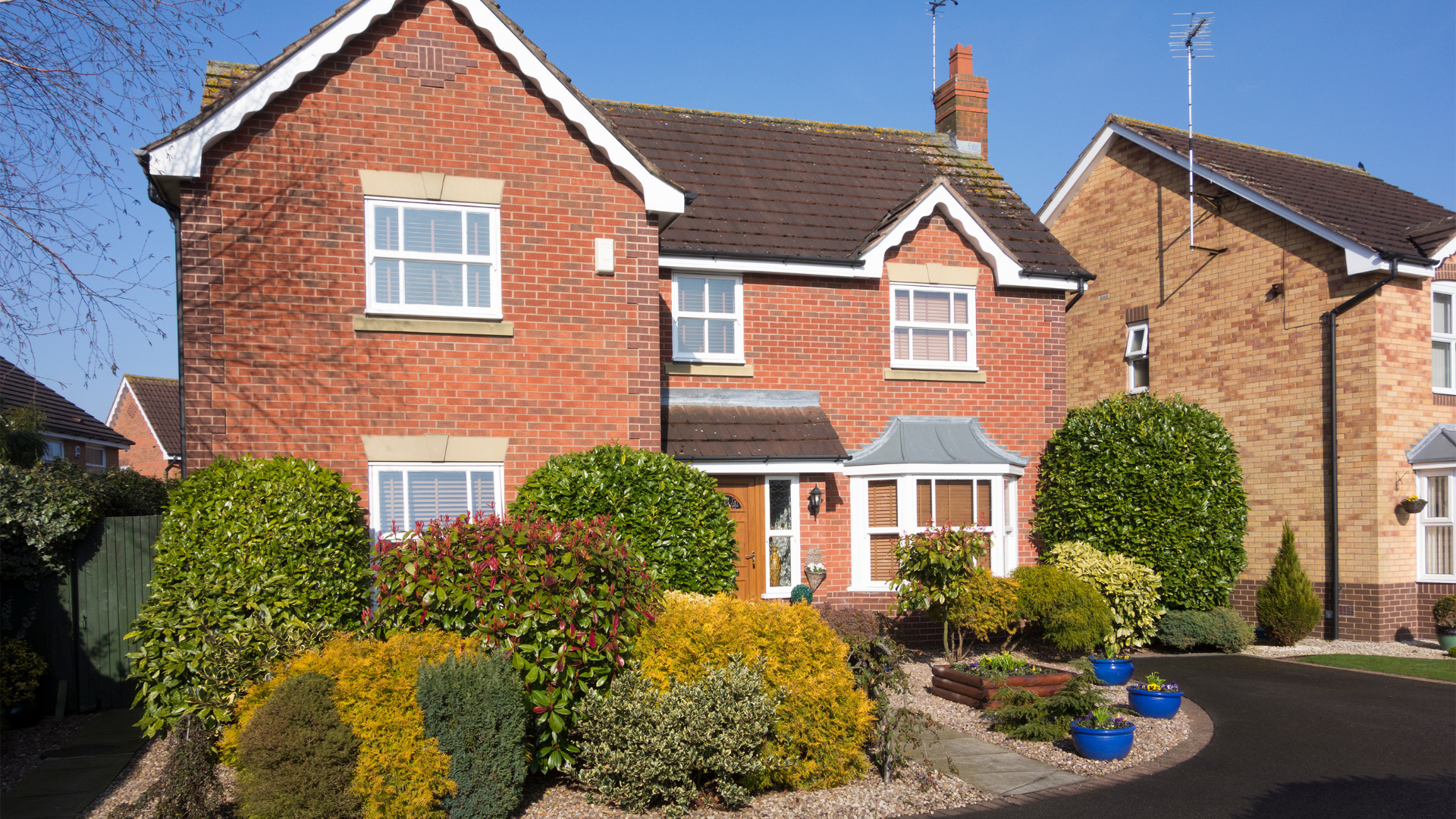
What Documents Do I Need to Sell My House?
In this blog we will be looking at the documentation needed to sell your home, where you can find them, and how you can sell your home in as little as 28 days…

Alexandra Ventress ★ Digital Content Writer
Table of Contents
Regardless of whether you are buying or selling a house, one thing stays the same, you will need to get familiar with a lot of different documents. From the more mundane proof of ID to the slightly more complex TA10 form, there are plenty of documents needed to sell a house.
Selling a house can be stressful enough without then being left in the dark over what paperwork you will need in order to sell.
So if you are wondering ‘What documents do i need to sell my house?’, read on, as we aim to answer that very question and more!
Looking for a quick answer? Check out our interactive menu on the left-hand side!
Do I need a damp proof certificate to sell my house?
When it comes to the documents you need to sell your home, a damp proof certificate is one of the most important certificates you can provide. If your property suffers from damp, it can devalue it by 53% if left untreated. This is why if you have had damp-proof treatment, being able to provide a certificate to prove it will work in your favour. It provides buyers with a safety net and gives them peace of mind about your property.
Do I need an electrical certificate to sell my house?
When it comes to the forms for selling a house, one you are under no legal obligation to produce an electrical safety certification. You are not under any legal obligation to provide an electrical safety certificate when selling unless you have had ‘notifiable’ electrical work carried out.
What documents are needed to sell a house?
There are several documents required to sell a house and it is a good idea to start collecting them before you begin to put your home on the market in order to avoid delays further down the line. But with so many documented necessary, it can be hard to know where to start.
Below, we take a closer look at the 11 documents you need when you sell your property:
Proof of ID for selling house is the first document you will need to provide! Whether you are trying to buy or sell, estate agents, mortgage lenders, and legal representatives are legally required by law to check your identity as a measure against money laundering. You will need to provide either a passport or driving license, as well as proof of address e.g. bank statement, a utility bill under 3 months old, or a driving license.
Title deeds prove that you are the rightful owner of a property and when you originally purchased your property, your solicitor should have sent you them. If you don’t have a copy of them, you can check with your mortgage lender to see if they are holding the original copy or whether they are with your solicitor.
The government decided that all properties should be registered with HM land registry in the 1980s, so in the event that you can’t locate your title deeds, you can request a copy for £3.
However, it is worth noting that 15% of land and property in the UK is not registered with the HM Land Registry. If your property is part of this percentage then things may get a little tricky as you will have to prove you are the legal owner. This will mean you will have to apply for “first registration”.
If you have purchased your property within the last 10 years, then you may already have a copy of your Energy Performance Certificate (EPC) available. The government has a database of every EPC in the UK, where you will be able to look up yours to see if you have one. If you do not have an EPC, then you will need to acquire one before it is put on the market.
If the property you are selling is leasehold, then you will need to locate the lease. It is up to your estate agent to then highlight how many years are left on the lease, as well as ground rent and service charges to be advertised when the property goes onto the market.
The majority of mortgages available will not cover shorter leases, so if you have less than 80 years left on yours then this may slow your house sale. If you have only lived at your property for two years, then you may want to look into extending the lease.
If you own a property that is under 10 years old or is a new build then you should have been provided with a copy of your BuildMark (NHBC) or other type of new home policy/warranty document.
If since January 2005 you have extended or altered the wiring in your home, then by law you are required to obtain a certificate referred to as a ‘Part P Building Regulation Certificate’ that you can pass onto your solicitor. This certificate will prove that any new electrical work that you have had done meets standards. If you cannot locate your certificate, then speak to the electrician who carried out the work.
While you are not legally obligated to provide a gas safety certificate, it is a wise idea if you need to sell your home. A gas safety certificate should be issued by a Gas Safe registered engineer and will show that your boiler is checked and safe. If you have a gas boiler on your property, then it is recommended that you have a gas safety certificate for your own safety. By having a gas safety certificate you are showing potential buyers that your boiler is safe and regularly maintained.
If in the time that you have lived in your property, you have replaced any of your windows, then you will be required to give either a FENSA or CERTASS certificate. This certificate will prove that the windows comply with building regulations and are typically valid for up to 10 years. FENSA and CERTASS certificates are available from the perspective websites. If the installation of your new windows was not carried out by an approved workman, or if you cannot find the certificate on either the FENSA or CERTASS website, then you may want to pay for indemnity insurance in order to cover the new owner.
If you have made any changes or alterations to the property, then you will need to show that you have obtained the proper consent and approvals. Building regulations, planning permission, and completion certificates will all need to be provided. As the seller, it is also your responsibility to give details of any building work or details that do not have the necessary consent and permissions, as well as any unfinished building and alteration work.
If you are selling a listed property, then you will need to supply details surrounding any listed building consent obtained for any exterior or interior work.
Unfortunately, no matter how much you love your property, no house is perfect. Warrenties and guarantees have to be taken out, and any potential buyers will need to know about this. Whether you have had damp, dry rot, Japanese knotweed or other issues, find copies of receipts or guarantees you may have for the work undertaken.
You will also need to provide your estate agent with all relevant material facts about your property. If you are unsure what is classed as material facts you should consult your estate agent, however, government guidance defines material facts that will have a major impact on the decision of the buyer to purchase your home. An example of this would be if your property regularly floods or is of non-standard construction.
You will also need to provide information surrounding non-optional financial commitments such as council tax, leasehold charges, or rent charge costs.
You should also provide any Party Wall Agreements for work that has been done that has impacted a shared wall with your neighbour as well as any insurance policies, such as indemnity insurance, and any details on restrictive covenants.
What if the property is leasehold?
If you are selling a property that is also a leasehold property, then in addition to the other documents you will also need to fill out a Leasehold Management Pack or a TA7 form. This will help to inform potential buyers about all of the leasehold information.
This form will usually be filled out by either your conveyancer or solicitor and will include all information about the lease as well as outlining the following:
- Ground rent
- Any plans for major work to take place at the property
- Service charges
- Building insurance details
- Details for any management companies
- Asbestos survey details
- External wall fire reviews
Do I need a fittings and content form?
As a seller, you may need to fill out a fittings and content form when selling a home. Also referred to as a TA10, this form informs the potential buyer of all of the household items included in the sale. This is useful as when you first show buyers around your property, it is not always clear what is and is not included in the sale price. It is a good idea to fill out this form as early into the selling process as possible so that any buyers know exactly what they are getting with your property. #5C2572
Property Information Form
Another document you will need to sell your house is a Property Information Form, also referred to as a TA6. This form provides potential buyers with an overview of the property to allow them to decide whether they wish to continue or not with their purchase.
The form will typically cover the following items:
- Property boundaries
- Any disputes that the property may bring
- If the property has ever been affected by Japanese knotweed
- If the property has an EPC
- If the property is listed
- If the property is in a conservation area
- Which utilities are connected to the property, such as gas, water, electricity, etc
- Any guaranteed warrenties
- If the building is insured
- If any building work has occurred
The Property Selling Company
If you are looking to sell your house quickly without the hassle then look no further. We are The Property Selling Company, and we believe that a house sale should be three things: fast, effortless, and free.
We have made it our mission to change the way you sell your house, which is why you can say goodbye to expensive legal and estate agent bills as we can sell your house without the fees, and in as little as 28 days.
At The Property Selling Company, we offer you a full estate agent service but without the hassle. Whether you are buying or selling, we are here to take care of everything and work alongside you every step of the selling process.
If you are ready to start your house-selling journey today, then get in touch or fill in one of free, no-obligation valuation forms!









